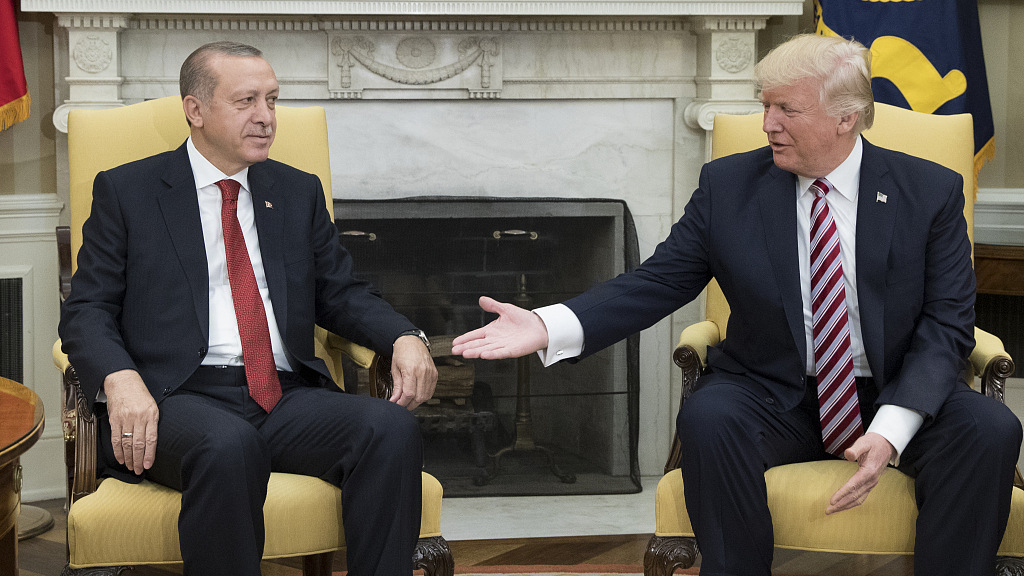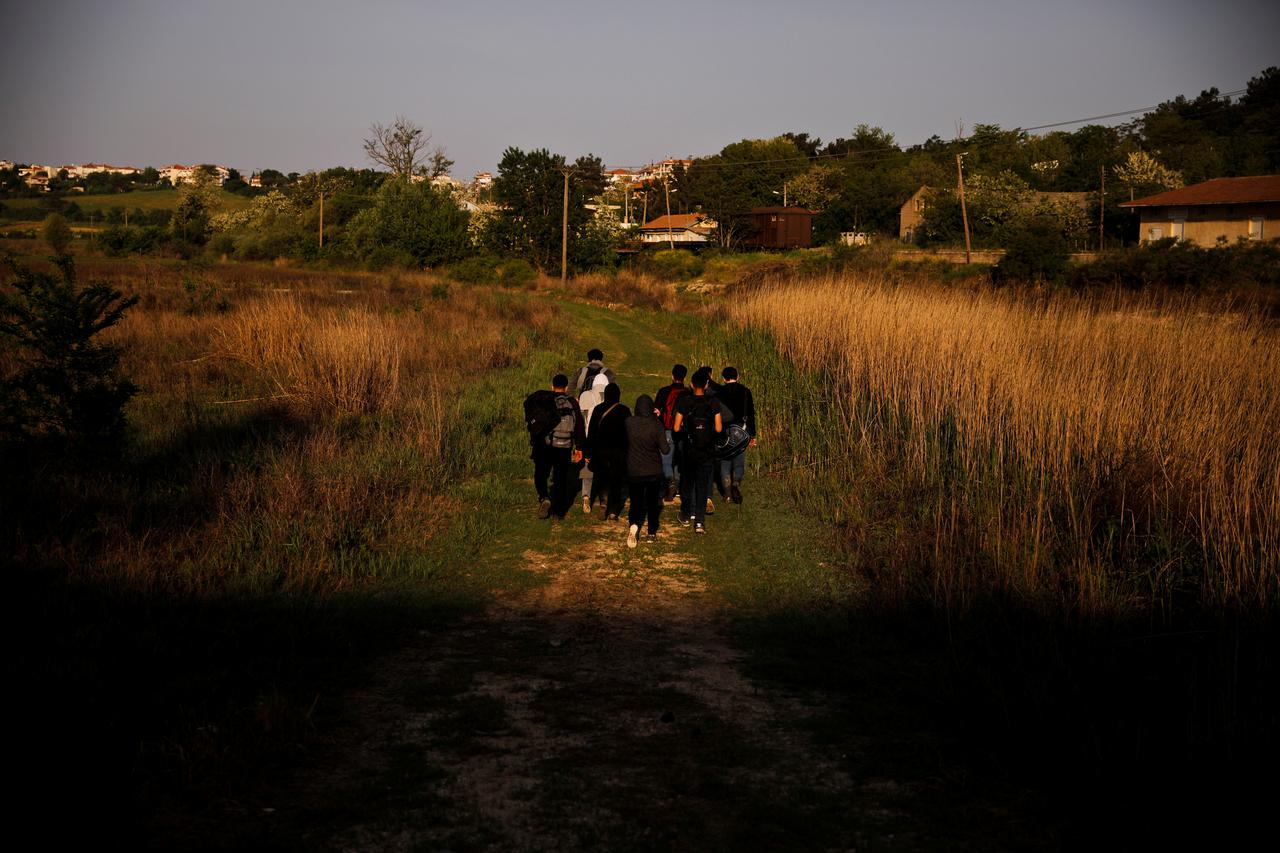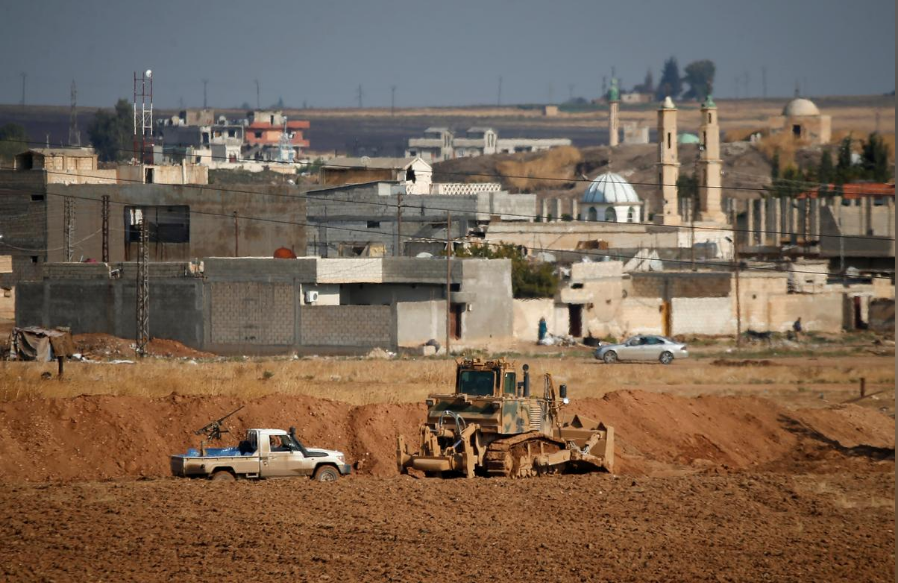
Turkish President Tayyip Erdogan accused the United States and Russia on Thursday of failing to fulfill their part of a deal for Kurdish militia to leave a Syrian region bordering Turkey, and said he would raise this with President Donald Trump next week.
Turkey launched an offensive across its border with Syrian rebels a month ago, seeking to push out Kurdish YPG fighters it sees as a threat to its security. After seizing control of a 120-km (75-mile) swathe of territory, Ankara reached a deal with the United States to keep the Kurdish militia out of that area.
Erdogan is set to discuss implementation in talks with Trump in Washington on November 13. Turkish officials confirmed on Wednesday that the visit would go ahead, after a phone call between the leaders.
"While we hold these talks, those who promised us that the YPG... would withdraw from here within 120 hours have not achieved this," Erdogan said ahead of a visit to Hungary, referring to a deadline set in last month's agreement.
Turkish officials said earlier this week that Erdogan might call off the U.S. visit in protest at votes in the U.S. House of Representatives to recognize mass killings of Armenians a century ago as genocide and to seek sanctions on Turkey.
After the deal with Washington, Ankara also reached an agreement with Moscow under which the YPG was to withdraw to a depth of 30 km (22 miles) along the entirety of the northeastern Syrian border with Turkey.
But Erdogan said this deal had also not been fulfilled, with YPG fighters still in the border strip, adding that he would hold talks with Russian President Vladimir Putin soon after his meeting with Trump.
"Neither the United States, within the 120 hours, nor Russia within the 150 hours, were able to get the terrorists to leave the region," Erdogan told a news conference in Budapest.

A group of Syrian refugees who crossed the Evros river, the natural border between Greece and Turkey, walks towards the city of Didymoteicho, Greece, April 30, 2018. /Reuters Photo
A group of Syrian refugees who crossed the Evros river, the natural border between Greece and Turkey, walks towards the city of Didymoteicho, Greece, April 30, 2018. /Reuters Photo
Speaking alongside Hungarian Prime Minister Viktor Orban, Erdogan also urged the EU to help with the Syria refugees.
Turkey plans to establish a "refugee town or towns" in a "safe zone" between Tel Abyad and Ras al Ain, part of a project which state media have said would cost 151 billion lira (26 billion U.S. dollars). The safe zone could allow up to 2 million Syrian refugees to settle once it is cleared of the Kurdish militants.
Erdogan told his country would have to open the doors to Europe for Syrian refugees if the EU could not provide enough support.
"Whether we receive support or not, we will continue to aid the guests we are hosting. But, if this doesn’t work out, then we will have to open the doors," Erdogan told a news conference in Budapest.
Ankara considers the YPG a terrorist group because of its ties to Kurdish militants fighting an insurgency in southeast Turkey since 1984. It has been infuriated with U.S. support for the YPG, a main U.S. ally in the fight against Islamic State.
Clashes in Syria
On Thursday, Erdogan said clashes in Syria were continuing, with 11 fighters from the Turkey-backed rebel Syrian National Army (SNA) killed on Thursday. He said "many more" YPG fighters were killed in the clashes.
Under the two bilateral deals, Ankara stopped its offensive in return for the withdrawal of the YPG fighters. Turkish and Russian soldiers have so far held two joint patrols near the border to monitor implementation of their agreement.

A vehicle belonging to Turkey-backed Syrian rebel fighters is parked next to a Turkish military bulldozer in the Syrian town of Ras al Ain, as seen from the Turkish border town of Ceylanpinar, in Sanliurfa province, Turkey, October 30, 2019. /Reuters Photo
A vehicle belonging to Turkey-backed Syrian rebel fighters is parked next to a Turkish military bulldozer in the Syrian town of Ras al Ain, as seen from the Turkish border town of Ceylanpinar, in Sanliurfa province, Turkey, October 30, 2019. /Reuters Photo
Ankara began its offensive after Trump announced an abrupt withdrawal of 1,000 U.S. troops from northern Syria in early October. The U.S. president has since said that some troops will continue to operate there.
Late on Wednesday, Mazloum Kobani, the commander of the YPG-led Syrian Democratic Forces, said the group was resuming work with the U.S.-led coalition against Islamic State in Syria after a serious of meetings with coalition leaders. Turkey has been outraged by some U.S. lawmakers inviting Kobani, who it views as a terrorist, to Washington for talks on Syria.
Turkish sources say Trump and Erdogan have a strong bond despite anger in Congress over Turkey's Syria offensive and its purchase of Russian air defenses, and despite what Ankara sees as the U.S. president's own erratic pronouncements.
Those personal ties could prove crucial, given NATO member Turkey's purchase of Moscow's S-400 missile defense system, which under U.S. law should trigger sanctions. Turkey has already been suspended from the F-35 fighter jet program in which it was both joint producer and customer.
Erdogan said he would discuss the issue of the S-400s and F-35s with Trump during his visit. He said he would also discuss the potential purchase of U.S. Patriot systems if a suitable offer was made.
(Cover: U.S. President Donald Trump extends his hand for a handshake with President of Turkey Recep Tayyip Erdogan in the Oval Office of the White House, Washington, U.S. May 16, 2017. /VCG Photo)
Source(s): Reuters